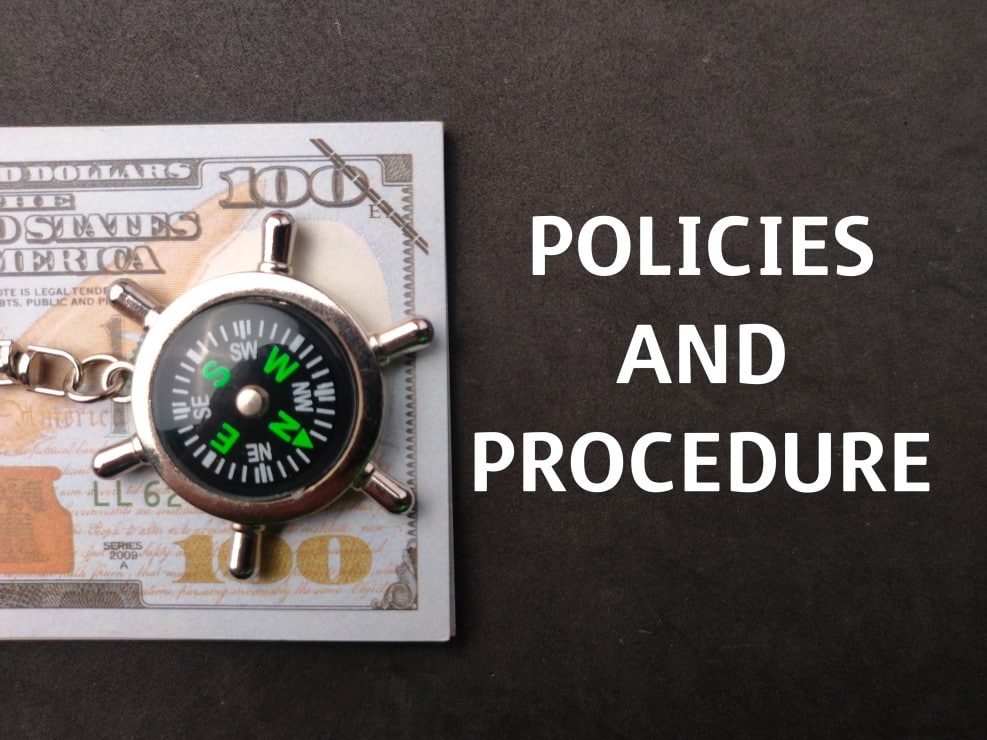As a result of the fact that every individual in your company is unique, you must establish clear standards and limitations for everyone’s behavior in your organization. An appropriate policy framework can help to avert future issues coming from group dynamics that are unique to each member of an organization if it is put in place in a timely manner.
Whatever the size of the organization, every corporation must have a system of regulations and policies that are well defined and thoroughly thought out before they can be put into effect.
What are policies?
In a corporation, decisions made by subordinates can only be made when they have the authority. This is referred to as a rule. In this approach, the lower levels of management may deal with difficulties and issues without gaining permission from the top.
Moreover, policies address how your organization could obtain its resources to fulfill its objectives. The policy research will examine what top-level managers do, what factors contribute to a firm’s performance, and what long-term decisions the organization makes now that will have an impact on it in the future.

Why are policies important?
As a result of policies, a company’s operations are standardized and standardized. Members of the co-operatives are given a set of rules and principles to adhere to. Employees are more likely to meet company objectives when policies guide them. The creation of a new product or handling of a customer support call may need the adoption of policies.
Policies help to enhance internal processes:
The internal operations of organizations that develop and adapt around the world might be challenging to follow. This is despite the fact that they are crucial in ensuring that the company functions consistently. It is vital to your company’s image that you maintain consistency in all aspects of your operations, regardless of the quality or extent of your customer service or product offerings.
Employees that adhere to company regulations and processes are more likely to give superior service to customers or clients. It is via the use of policies that internal operations may be clarified, as well as the assurance that they are being followed.
Consistent procedures are made possible by policies:
Policies help keep everything in order and avoid chaos. If everyone in your company follows the rules that have been set up, your business will run more smoothly. As planned, everything goes as designed for both management structures and workgroups.
As a result, mistakes and glitches in the process can be quickly found and fixed. If your employees follow the rules, your business will run better. As a group, you’ll be able to grow and meet your goals. Employees, too, benefit from having the same rules and procedures.
Policies help to build a more robust culture:
Ultimately, having policies helps build a better business culture, which is the most important thing. Everybody will be more likely to produce a trusting, united culture if they know what policies and procedures are in place and the fundamental ethical beliefs and goals behind them.
When a company has a culture like this in place, fewer concerns with compliance arise. Although the organization’s production grows, the number of employees who leave the firm reduces.

Employees are held to account by rules:
Employees follow the rules, as we have said. You now have a way to hold people accountable if they don’t do what they were told to do, so it’s easier to do that. So, it’s even more critical for businesses to have well-defined procedures in place so that no one can say they didn’t know what to do.
Getting a copy of the policy should be easy for workers to do. It should also be written in a language they can understand, according to the Justice Department’s advice on policy accessibility.
Policies help organizations and the people who work for them hold individuals who do not follow the rules accountable for their actions to achieve this goal. This is quite crucial. To be effective, it is required to employ appropriate teaching techniques, which are essential to success.
Workplace safety is improved by enacting policies:
When policies and procedures are followed, the likelihood of an accident or incident occurring at work is reduced. Employees who are aware of and adhere to corporate policies and practices are less likely to be involved in workplace accidents and mishaps and hence are less likely to be involved in them.
This reduces the company’s risk of being sued and minimizes the impact on business. In order to be more productive, you need to work in a place where you know your bosses and coworkers have your best interests at heart. However, it is reassuring to know that safety measures are in place if something happens to the people who work together.
Policies are used to find out what's wrong:
Employees who follow company rules and procedures are better able to spot irregularities in transactions, which helps compliance and audit teams in their efforts to find anomalies in dealings. In other words, regulations and procedures help people notice when things happen that aren’t normal.
People who don’t submit expense reports with itemized receipts are easier to find if the policy is that all receipts have to be enumerated, and the practice is that all accounts have to be done online. The next step is to ask: Why? How trustworthy are the stories? To look at some more options, let’s do that now. Then, too. It’s also a sign that your policies and processes may be the exceptions, not the norms if employees keep going to management to ask for exceptions to policy or complain that a process is too onerous.
A policy tells people what they should expect:
Employees’ expectations of a company always change with the times. As long as policies and procedures are up to date, people can better handle their expectations. As your work environment changes, you should ensure your rules and procedures are up to date. There are now more options for flexible work schedules, more latitude when it comes to dressing code, and a more tolerant business climate that there are more options.
Because things have changed, the rules for what is acceptable should not have changed, too. There are still rules about how many hours people have to work each day, even if some companies now let them operate “Flexi Hours.” Even if you arrive at 10:00 and leave at 6:00, the parts are still there for people who come at 8:00 and leave at 4:00, even if you don’t.
Finally, some closing thoughts:
Policies help employees understand what is expected of them in terms of their conduct and performance, and they also assist in establishing norms and processes for decision-making in the workplace. Workplace rules and regulations are essential, and it is hard to overstate their importance. If you don’t have them, your organization is at risk.
In other words, when was the last time you reviewed your policies and made any necessary changes? While it may appear daunting at first, the benefits of creating and maintaining an accurate and compliant set of Company Policies much outweigh the risks of not doing so, despite the fact that the work may appear frightening at first.

